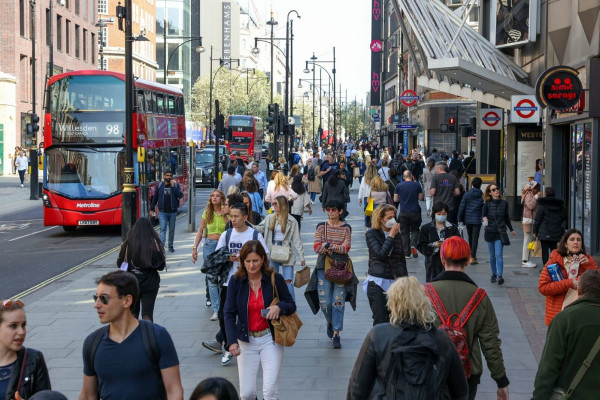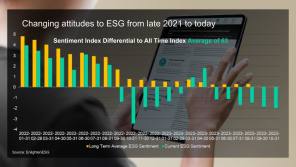

The annual SEC Newgate ESG monitor released yesterday (October 19) revealed that the UK public no longer ranks climate change as the top concern, with cost of living now taking the top spot.
When it came to the top three priorities for the UK’s future, participants gave the highest priority to addressing the rising cost of living, ensuring quality, affordable energy and fuel supplies, and ensuring secure and affordable food supplies.
The responses from the 1,000 UK participants (12,000 globally), are in contrast to last year’s results which showed a higher interest in ESG.
The research also revealed that the vast majority of respondents wanted corporations to be held to high standards, with 77 per cent saying they wanted corporations to behave like good corporate citizens and consider their impacts on other people and the planet.
However, unprompted awareness of the term ‘ESG’ in the UK was low, with 12 per cent of respondents claiming a good understanding of it.
This figure remained unchanged from last year and is slightly lower than the global total of 15 per cent.
Only one in ten UK participants said they felt very informed about companies’ ESG activities and performance - 11 per cent gave themselves a rating of eight or more out of 10.
Furthermore, the number of participants who actively seek ESG related information about companies was notably lower than the global average, with only 22 per cent of respondents saying it was something they do. This compared with 33 per cent globally.
SEC Newgate chief executive, Emma Kane said the findings showed that the UK is “veering off course” but she noted that it is clear the UK public still “deeply cares” about the environment and how companies and other organisations act.
“The British public is particularly sensitive to businesses evading tax and more than a third have a good understanding of ‘net zero’,” Kane said.
She added however, that “much more work needs to be done by the private and public sector in helping UK citizens understand ESG principles.”
When prompted with a list and asked which actions would genuinely make them stop or avoid using a company’s products or services, the company behaviours most commonly chosen by UK respondents were:
- Slave labour/child labour (65 per cent);
- Corruption (58 per cent); and
- Tax evasion (53 per cent)
The report also noted that there is a heightened sensitivity to tax evasion in the UK (53 per cent), where more people said they would boycott a company that was avoiding paying its fair share of taxes than the global total of 45 per cent.
More generally, the research also revealed that there has been a substantial drop in participants’ outlook on where the UK is heading.
Only 30 per cent said they felt the UK “was heading in the right direction” compared to 52 per cent last year.
This figure was also significantly below the global average of other countries for this year, which was at 46 per cent.
jane.matthews@ft.com



